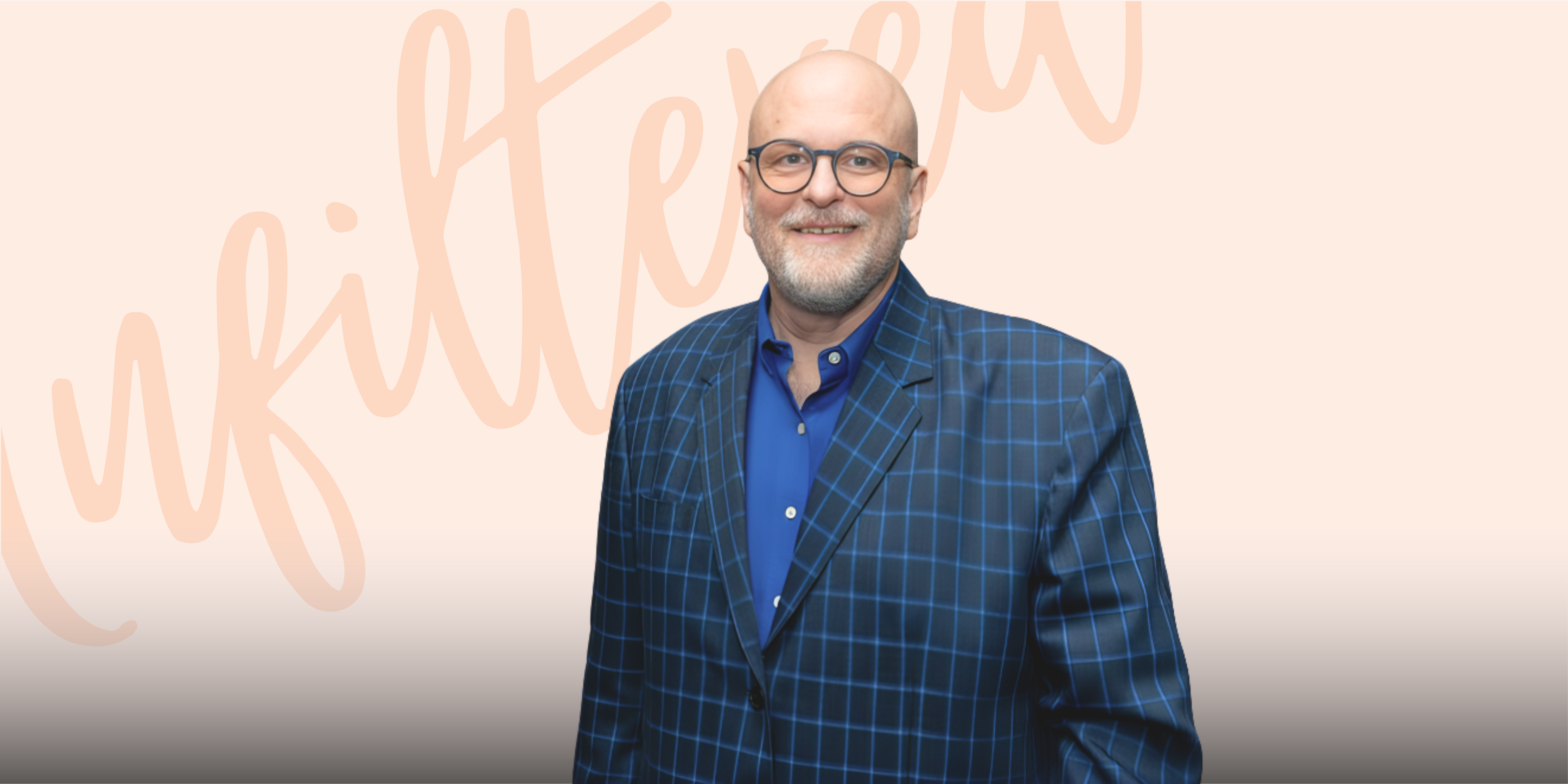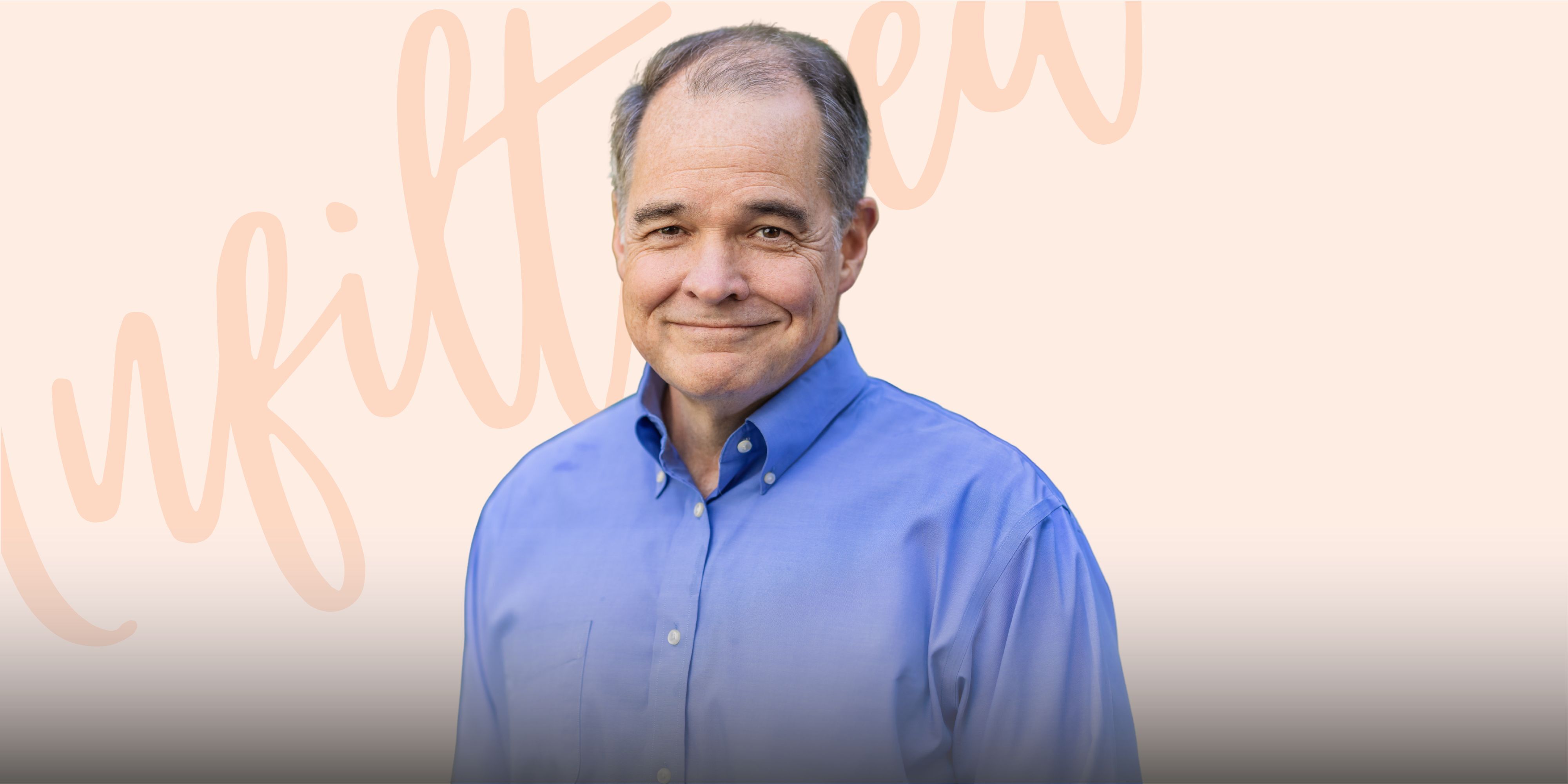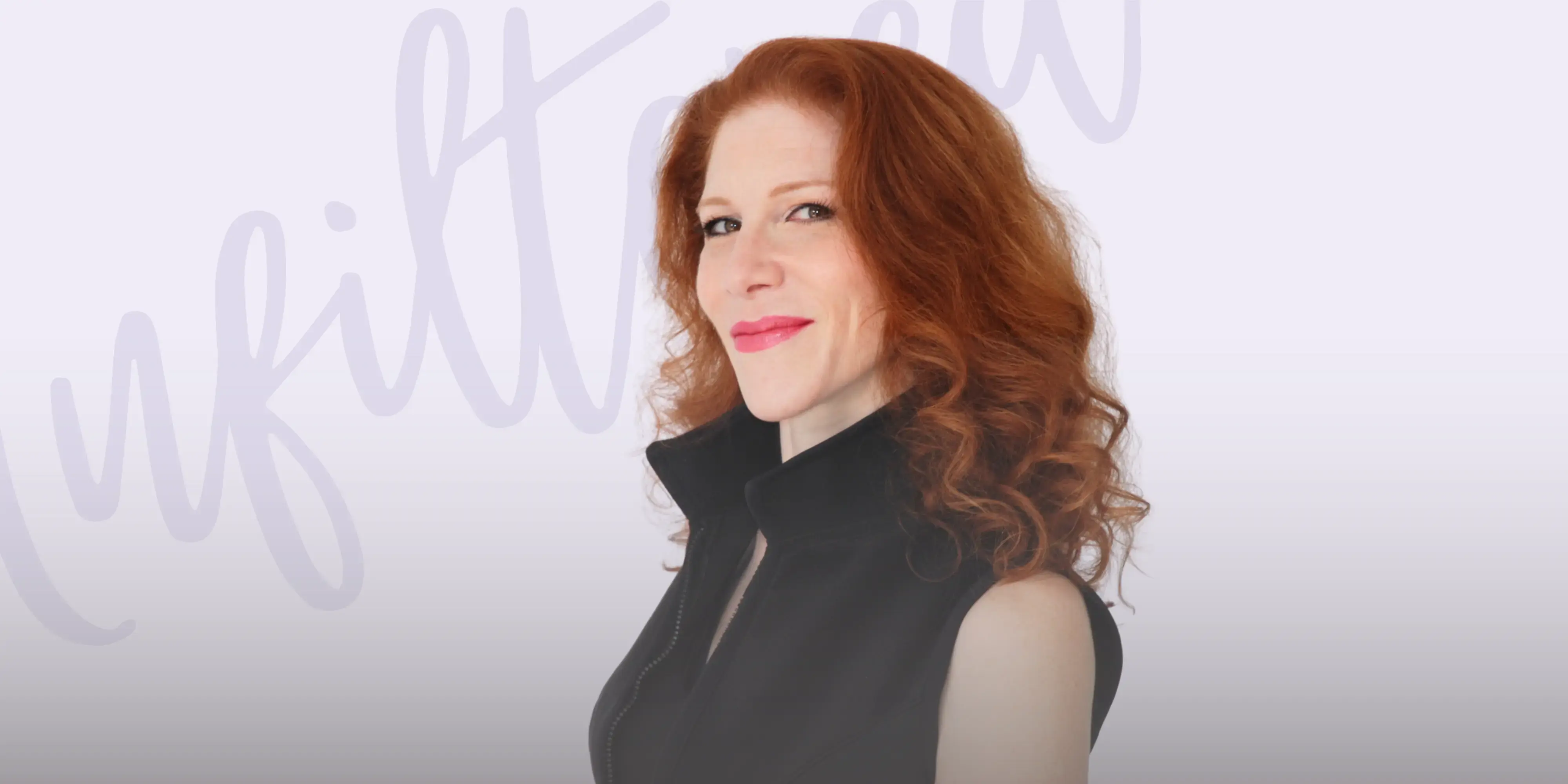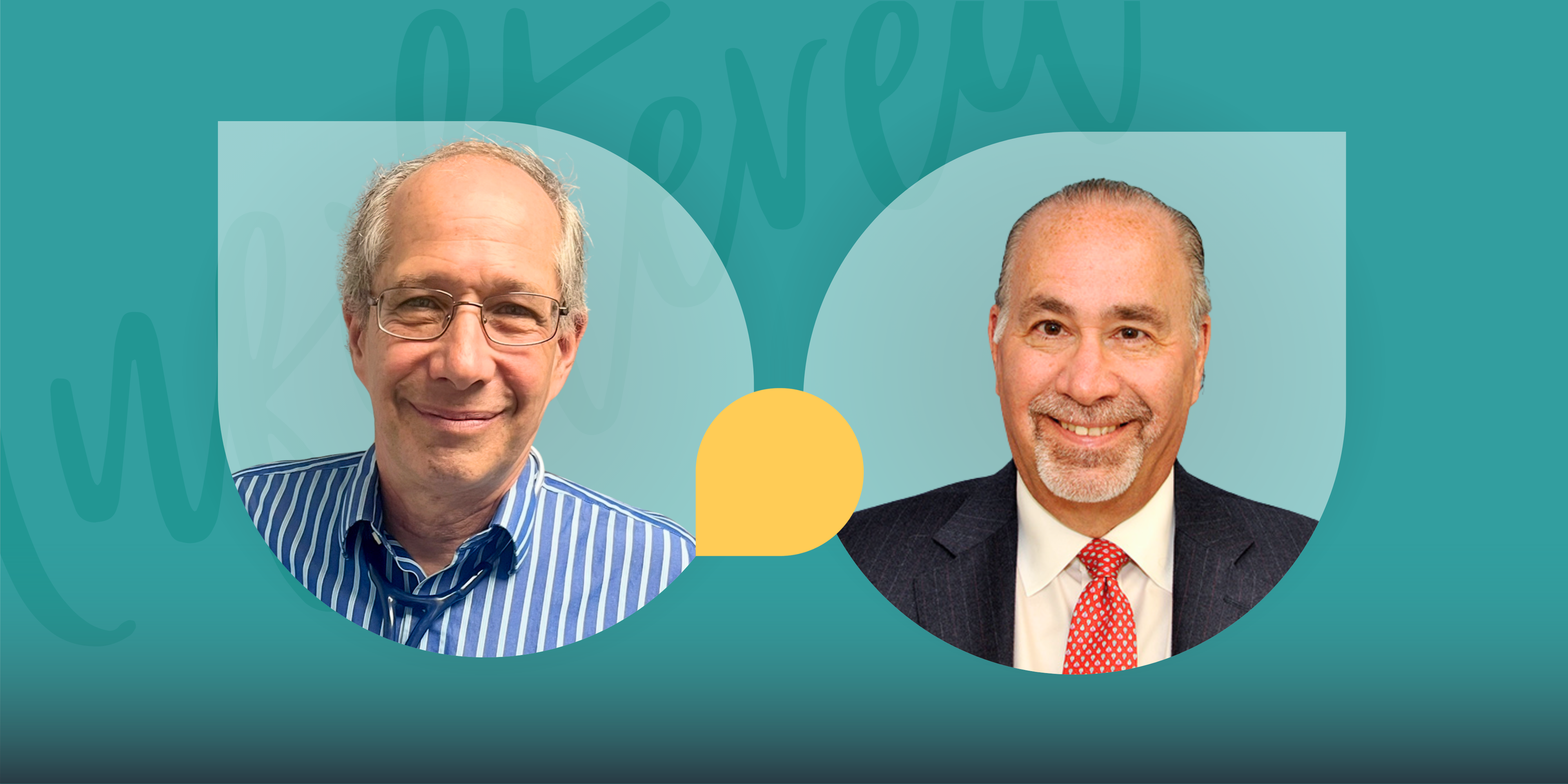You scroll, you swipe, you click “buy now,” and for a moment, it feels like relief. But five minutes later, you’re already searching for the next thing. Another tab. Another notification. Another task on the list.
Why do we keep reaching for more—yet never feel truly satisfied?
In this episode of Sofia Unfiltered, Riley Rees sits down with Michael Long, physicist, screenwriter, and co-author of Taming the Molecule of More, to explore the brain science behind this constant craving. The culprit? Dopamine.
Long explains how dopamine fuels anticipation, not contentment. And in a world filled with infinite scrolling, multitasking, and one-click gratification, our brains are stuck in overdrive, leaving us anxious, scattered, and emotionally drained.
“Dopamine is not the molecule that makes you happy. Dopamine is the one that makes you want things… it makes us anticipate, crave, pursue, chase. Any new thing that might be good.” Says Michael.
This blog breaks down the biggest takeaways from the conversation, including why “more” is never enough, and what your brain actually needs to feel calm, connected, and fulfilled. You’ll also find actionable strategies and expert-backed tools to help you reclaim your focus and rebuild a life rooted in meaning, not just reward.
If you’re tired of feeling distracted, disconnected, or like your attention is constantly under siege, keep reading. You can take back control—one small shift at a time.
Explore coaching, classes, and tools to support your nervous system with specialists at Sofia Health.
What Is Dopamine—And Why Can’t We Stop Chasing It?
Dopamine is the brain’s motivation and craving chemical. It drives you to seek out reward, but it’s not what makes you feel content or happy.
Despite what we’ve been told, dopamine isn’t about pleasure. It’s about the pursuit of pleasure. It’s the reason you feel an itch to check your phone, scroll just a little longer, or multitask even when you’re already overwhelmed.
Here’s how it shows up in your day:
- Swiping endlessly on dating apps, even when you're not excited
- Refreshing your inbox or Slack to “stay on top of things”
- Obsessing over likes, views, or unread messages
- Opening tab after tab, hoping one will help you feel focused
“Dopamine promises us that this unknown thing out in the distance will give us a good feeling—if only we’ll chase it down and possess it.” — Michael Long.
This system helped early humans survive by keeping them alert and curious. But in the modern world, where stimulation is endless and instant, dopamine doesn’t know when to quit. And that’s exactly where the trap begins.
Is Dopamine Behind Digital Addiction?
Yes—and it's not your fault. Every ping, scroll, and swipe gives your brain a tiny hit of dopamine. These platforms aren’t just fun, they’re engineered to keep you chasing that hit.
“If every time the phone gave you a ding and you touched it, it burned you, you wouldn’t do that anymore… But every time that ding goes off, you get that little dopamine buzz, and that’s the dopamine buzz. It’s that feeling of anticipation.” Complete Michael.
We live in a hyper-stimulating environment that keeps our dopamine circuits constantly activated:
- Endless social feeds that never give your brain closure
- One-click purchases that reward impulse instantly
- Multitasking loops that prioritize novelty over depth
- Push notifications that create anxiety and FOMO
Over time, your brain starts to link constant stimulation with safety, so even a few quiet minutes can feel uncomfortable or even threatening.
That’s how dopamine traps you in a cycle: craving more input, feeling worse without it, and repeating the behavior just to feel “normal.” And unless we consciously break that pattern, it never stops.
Explore Mindset Coaching to help you slow down and reconnect with yourself.
What Happens When Dopamine Goes Into Overdrive?
When your dopamine system is constantly stimulated, your brain doesn’t feel more motivated—it starts to short-circuit.
You feel scattered, wired, and exhausted all at once.
Instead of helping you focus or feel accomplished, an overactive dopamine system keeps you chasing more without ever feeling done. That’s when symptoms of mental and emotional burnout show up.
Common signs of dopamine overdrive:
- Restlessness or difficulty sitting still
- Chronic anxiety or low-grade agitation
- Trouble focusing or completing tasks
- Poor sleep, even when you’re exhausted
- Emotional flatness or lack of joy
- Compulsive checking, scrolling, or task-switching
“You think, ‘Eventually we’ll get tired of this.’ Yeah, you will. And you’re still going to crave it, which is why it takes more things to do.” Says Long.
Your brain isn’t broken. It’s just overstimulated and undernourished.
And without intentional recovery, that craving loop only intensifies, leading to chronic stress, burnout, and emotional disconnect.
Want to feel clarity again?
Find a provider on Sofia Health who can help you reset the Fatigue, on your way!
Let’s break this down in a way that makes sense—and feels honest.
Dopamine is that little spark in your brain that says:
“Ooh! What’s next? What else can I do? What more can I get?”
It’s the go-getter energy that keeps you refreshing your inbox, chasing the next goal, or checking your phone for the hundredth time today.
Now, dopamine has its place, but it’s not the thing that makes you feel good deep down. It doesn’t create peace, connection, or joy. It creates craving.
Here’s the difference:
|
Dopamine |
Satisfaction |
|
Seeking |
Savoring |
|
Anticipating |
Experiencing |
|
Future-focused |
Present-focused |
|
Hustle |
Groundedness |
In our culture, we’re constantly praised for the dopamine-driven stuff, achievement, productivity, and pushing through. But at some point, chasing turns into burnout.
So if you’ve been feeling anxious, scattered, or like you’re always behind… it might be time to switch gears.
Here’s how you shift from “go mode” to “feel good”:
- Slow down — not forever, just for a breath.
- Be where your feet are — even if it’s folding laundry.
- Engage your senses — sip your tea like it matters.
- Unplug a little — give your brain a break from all the noise.
These aren’t big, dramatic changes. They’re small shifts that remind your body it’s safe to stop chasing and just be here.
“The best reason to do it, in my opinion, is to enjoy the moment that you’re in… After all, life is lived in the moment.” — Michael Long.
You don’t have to hustle your way to peace. You can start creating it in the quiet moments, one choice at a time.
Need support slowing down and reconnecting?
Explore Coaching and Movement on Sofia Health to break dopamine addiction.
10 Signs You Might Be Caught in the Dopamine Loop
Not sure if this applies to you? Take a moment and check in with yourself.
Here are some common signs your brain might be stuck in craving mode:
- You reach for your phone, even when nothing has pinged.
- You feel anxious or bored when things get quiet.
- You multitask all day, but still feel behind or scattered.
- You scroll long after you meant to go to sleep.
- You struggle to enjoy rest or downtime without some kind of stimulation.
- You start a lot of projects, but rarely finish them.
- You feel disconnected from others, even when you’re surrounded by people.
- You’re constantly chasing goals, but you never feel like they’re enough.
- You say “just five minutes”... and lose an hour.
- You try to take breaks, but find yourself going right back to the same habit.
If you saw yourself in more than a few of these, you’re definitely not alone, and more importantly, you’re not stuck.
“There is help. You've got to reach out and you've got to ask for it… Get someone to hold your hand for a minute, and you can find, and then to come back to this, you will find that there are step-by-step things to do to get you out of that problem.” Complete Michael Long.
Your brain just needs a reset. And that’s totally doable with support, structure, and simple tools that work with your biology, not against it.
Ready to shift out of survival mode?
Find your Support System on Sofia Health.
So, How Do You Break the Cycle?
This cycle of constant craving and distraction wasn’t your fault to begin with—but it is something you can shift.
The key isn’t to overhaul your entire life or quit technology altogether. The goal is to help your brain feel safe again, without needing constant stimulation.
“We have this thing we can analyze… there’s stimulation and then there’s reaction, but there’s a space in between stimulation and reaction. And that space is where we can take control.” Says Michael.
You don’t have to be perfect. You just need to start with one small shift. Here’s what that can look like:
1. Build Awareness
Start noticing your habits with curiosity—not judgment.
- When do you reach for your phone the most?
- What are you feeling in those moments (boredom, overwhelm, loneliness)?
- What patterns come up again and again?
This simple awareness helps you press pause before acting on impulse.
2. Create Gentle Boundaries
Dopamine thrives on fast, easy hits. So create a little space between wanting and acting.
- Keep your phone out of the bedroom.
- Use app timers or grayscale mode during the workday.
- Set a no-screen time block before bed.
- Try one screen-free morning a week.
3. Add in the Good Stuff
You’re not just removing stimulation, you’re replacing it with something more grounding, more meaningful.
Try:
- Breathwork or mindset practices.
- Nature walks or movement classes.
- Journaling or creating without a goal.
- Talking to someone who truly listens.
4. Get Support
This kind of change is hard to do alone, and you don’t have to. Coaches, therapists, and wellness guides can help you break these patterns with compassion, structure, and personalized support.
Connect with Life Coaches to rediscover clarity, purpose, and meaningful direction in life.
Who Can Help You Break Free from the Dopamine Trap?
Here’s something a lot of people don’t realize: you don’t have to figure this out alone.
Trying to reset your brain and rebuild healthier habits, without support, can feel overwhelming.
Because truthfully? You’re not just changing behaviors. You’re working with biology, stress patterns, and a world that’s constantly pulling your attention in every direction.
That’s where the right kind of help makes all the difference. On Sofia Health, you can connect with professionals who get it—people who can walk with you through the fog and help you find clarity, calm, and balance again.
You’ll find:
- Breathwork instructors to help regulate your nervous system.
- Life coaches who can guide you through mindset and habit shifts.
- Therapists who specialize in anxiety, distraction, or burnout.
- Mindfulness teachers and movement classes to help you feel grounded again.
- Guides and digital wellness tools to support you between sessions.
Whether you’re just getting started or ready to go deeper, there’s someone here to support you—on your schedule, at your pace.
Because this isn’t about fixing yourself, it’s about coming back to yourself, with tools that work and people who care.
Final Thoughts: You Deserve More Than Just “Keeping Up”
If you’ve been feeling distracted, burned out, or like you’re always chasing something, but never really landing, you’re not imagining it. Your brain has been wired for more in a world that never slows down.
But here’s the good news: you don’t have to stay in that cycle.
You can stop chasing.
You can feel present again.
And you can build a life that feels meaningful, not just productive.
It starts with awareness. Then one small shift. Then another.
Whether that’s setting your phone down after dinner, booking a breathwork session, or saying no to one more thing on your plate… it counts.
And you don’t have to do it alone.
Sofia Health is here to support you with real people, practical tools, and science-backed practices to help you reset, refocus, and reconnect with yourself, your values, and your life.
Explore coaching, classes, and emotional support on Sofia Health.
So if your nervous system has been in overdrive...
If your days feel full but your heart feels empty...
If you’re craving calm instead of more…
Let this be your reminder:
You don’t need to chase your way to peace.
You can choose it—starting today.
Regulate Your Mind, Focus & Emotional Wellness
If you’re feeling stuck in cycles of distraction, overstimulation, or burnout, Sofia Health connects you with trusted experts to help you reset your brain’s balance and reclaim clarity. From mindfulness coaching and therapy sessions to focus-building classes and digital detox support, explore the Sofia Marketplace to discover services and tools designed to calm your nervous system and help you return to the present moment.
Check out the full episode of the Sofia Unfiltered podcast, "The Dopamine Trap: Why Nothing Ever Feels Like Enough", for a conversation that goes beyond calcium. Learn how yoga, gut health, and targeted nutrition can shift your trajectory, no matter your age. Available on Apple Podcasts and Spotify.
We’re here to help you meet your wellness goals—physically, mentally, emotionally, and spiritually. Whether you prefer a subscription for ongoing support or want to shop for individual services, classes, or products, Sofia Health provides the tools you need to thrive. Plus, with Sofia Prime, you can access both live classes and an extensive on-demand video library, featuring expert-led content in wellness, nutrition, fitness, and meditation.
Start your two-week trial today and discover the difference that dedication and expert help can make.
10 Most Googled Questions About Dopamine, Focus, and Burnout
1. What is the dopamine trap?
The dopamine trap is the cycle of chasing stimulation (scrolling, multitasking, shopping) without ever feeling satisfied.
2. Why am I always looking for something new?
Dopamine is wired for novelty. It constantly searches for what's next, not what’s now.
3. Can too much dopamine cause anxiety?
Yes. Chronic overstimulation from dopamine triggers can keep you in fight-or-flight mode, leading to anxiety and burnout.
4. What’s a dopamine detox?
It’s a break from high-dopamine activities like screens, apps, sugar, or overwork. The goal is to reset your baseline.
5. Do I need to quit social media?
Not necessarily. But you may need boundaries: screen-free mornings, deleted apps, or “weekend detoxes.”
6. How can I increase focus without medication?
Try single-tasking, daily mindfulness, breathwork, and movement. These train your brain to tolerate stillness and rebuild attention.
7. What’s the fastest way to reset my brain?
Start with one screen-free hour daily, prioritize sleep, and engage in body-based grounding like walking or breathwork.
8. How do I stop chasing productivity?
Redefine success. Make room for presence. Focus on being overdoing. Let rest count.
9. Can coaching or therapy help with overstimulation?
Absolutely. A wellness provider on Sofia Health can help you identify triggers, build new patterns, and stay accountable.
10. Is this just how modern life is?
It doesn’t have to be. You can change your environment, your habits, and your nervous system. One step at a time.
Resources
- “What does dopamine mean?”. Nature Neuroscience, May 2018.
- “Stanford Medicine study reveals why we value things more when they cost us more”. Stanford Medicine, November 2023.
- “Dopamine in motivational control: rewarding, aversive, and alerting.” PubMed, December 2010.
- “In 'Dopamine Nation,' Overabundance Keeps Us Craving More”. NPR, August 2021.
- “The impact of bedtime technology use on sleep quality and excessive daytime sleepiness in adults”. PubMed, April 2022.
- “Dopaminergic reward system: a short integrative review”. International Archives of Medicine, October 2010.
- “Electronic Screen Use and Sleep Duration and Timing in Adults”. Jama Network, Original Investigation, Public Health, March 2025.
- “Free operant observing in humans: a translational approach to compulsive certainty seeking”. PubMed, October 2018.
- “Accounting for the Power of the Here-and-Now: A Theoretical Revolution”. International Journal of Group Psychotherapy, October 2015.
- “Digital Detox Strategies and Mental Health: A Comprehensive Scoping Review of Why, Where, and How”. PubMed, January 2025.
- “The benefits of being present: Mindfulness and its role in psychological well-being”. Journal of Personality and Social Psychology, April 2003.
- “Cultural objects modulate reward circuitry”. NeuroReport, December 2002.
- “Social Support for Changing Multiple Behaviors: Factors Associated With Seeking Support and the Impact of Offered Support”. PubMed, April 2018.
- “Evaluating dopamine reward pathway in ADHD: clinical implications.” PubMed, October 2009.
Disclaimer: The Sofia Unfiltered Podcast by Sofia Health is for general informational and entertainment purposes only and does not constitute the practice of medicine, nursing, or other professional healthcare services, including the giving of medical advice. No doctor/patient relationship is formed. The use of information on this podcast or materials linked from this podcast is at the user’s own risk. The content of this podcast is not intended to be a substitute for professional medical advice, diagnosis, or treatment. Users should not disregard or delay in obtaining medical advice for any medical condition they may have. For any health concerns, users should seek the assistance of their healthcare professionals.







